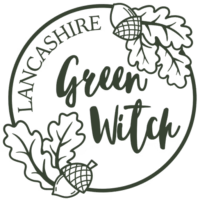Understanding Witchcraft: A Blend of Mind and Nature
Witchcraft, at its heart, is a fascinating fusion of psychology and herbalism, creating a holistic practice that nurtures the mind, body, and spirit. While many associate witchcraft with spells and rituals, its foundation is deeply rooted in understanding human psychology and the healing properties of nature. Unfortunately, not everyone sees it this way. When faced with criticism or scepticism, understanding and confidently communicating your practice can make all the difference.
Let’s explore how witchcraft is more than mysticism and why its psychological and herbalist elements are key to its transformative power.
Witchcraft and Psychology: Harnessing the Power of the Mind
One of the most empowering aspects of witchcraft is its reliance on the mind’s potential. At its core, witchcraft incorporates practices like intention-setting, visualisation, and affirmations, which are also celebrated in modern psychology.
The Role of Positive Thinking in Witchcraft
When you cast a spell, you’re not just performing a ritual—you’re focusing your energy and reinforcing positive beliefs. For example:
- Spells for confidence: By declaring affirmations such as “I am strong and capable,” you’re programming your subconscious to believe in your abilities.
- Manifestation rituals: These involve visualising your desired outcome, a technique often recommended by therapists to help individuals achieve their goals.
These practices help you align your mindset with your intentions, fostering self-belief and resilience. Whether you’re preparing for a job interview or working through personal challenges, the psychological tools within witchcraft can help you navigate life with greater clarity and confidence.
Herbalist Knowledge in Witchcraft: Healing with Nature’s Gifts
Another essential element of witchcraft is its deep connection to herbalism. Witches have long worked with plants and herbs, not only for their symbolic meanings but also for their proven therapeutic properties.
The Science Behind Witchy Herbs
Many plants commonly used in witchcraft have been studied for their health benefits. For example:
- Lavender: Known for its calming effects, it reduces stress and promotes restful sleep.
- Rosemary: Enhances memory and concentration, often used in rituals to sharpen the mind.
- Ginger: A powerful anti-inflammatory, it soothes digestive issues and boosts immunity.
- Frankincense: Has anti-inflammatory properties and is used in meditation for its grounding effects.
Incorporating these herbs into your spells, teas, or baths isn’t just mystical—it’s a practical way to enhance your well-being. Whether you’re making an anxiety-relieving potion or a focus-enhancing incense, you’re tapping into the natural world’s healing potential.
When Haters Question Your Witchcraft
Facing criticism for your practice can be challenging, especially when misconceptions about witchcraft are so common. However, knowing the psychological and herbalist foundations of your craft can give you the confidence to handle sceptics with grace. Here’s how:
1. Educate with Confidence
When someone challenges your practice, use it as an opportunity to share its real-world benefits. Explain how rituals promote mindfulness or how herbs like lavender and ginger have scientifically proven properties. By framing witchcraft in terms of its psychological and natural advantages, you can bridge the gap between scepticism and understanding.
2. Set Boundaries
Not every critic deserves an explanation. If someone is dismissive or disrespectful, it’s okay to set boundaries. A simple, “This is an important part of my life, and I’d appreciate your respect,” can go a long way.
3. Surround Yourself with Support
Find like-minded individuals who understand and celebrate your path. Online communities, local covens, or even a few close friends can provide the encouragement you need to stay grounded in your beliefs.
4. Let Your Results Speak
Sometimes, the best way to silence critics is to thrive. When people see the confidence, peace, and well-being you’ve gained through witchcraft, they may begin to view it in a new light.
Why Witchcraft Is a Path of Empowerment
Witchcraft is more than spells and rituals—it’s a lifestyle that promotes empowerment, self-awareness, and a deep connection to the natural world. By blending psychology and herbalism, it offers practical tools to enhance your mental and physical well-being. Here’s why this matters:
Building Resilience Through Ritual
Rituals provide structure and meaning, helping you process emotions and navigate life’s challenges. Whether it’s a full moon ceremony to release negativity or a daily affirmation ritual, these practices create a sense of purpose and control.
Connecting with Nature
In a fast-paced, technology-driven world, witchcraft encourages you to slow down and reconnect with the earth. Harvesting herbs, preparing potions, or simply meditating in nature can be profoundly grounding.
Embracing Personal Growth
By focusing on your intentions and goals, witchcraft helps you grow into the best version of yourself. It’s a reminder that you have the power to shape your reality, one spell or affirmation at a time.
Final Thoughts: Owning Your Craft
When haters call you out for your witchcraft, remember that their opinions don’t define you. Your practice is a beautiful, empowering blend of psychology and herbalism that nurtures your mind, body, and spirit. By standing firm in your beliefs and educating others, you can challenge misconceptions and inspire understanding.
So, keep casting your spells, blending your potions, and living your truth. The magic you create—both within and around you—is a testament to the transformative power of witchcraft.
Discover more from Lancs Green Witch
Subscribe to get the latest posts sent to your email.
